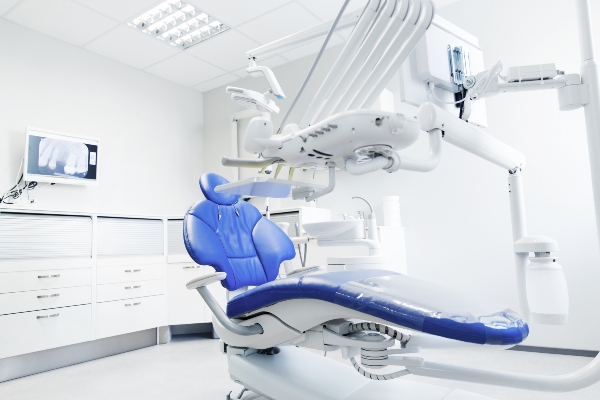 Many patients prefer traditional dentures due to their various benefits, from easy maintenance to improved chewing function. With a variety of benefits for dentures, patients may wonder if dentures are the right choice for their oral health needs. Here are the pros and cons of dentures that patients should review before deciding if this replacement is the best option.
Many patients prefer traditional dentures due to their various benefits, from easy maintenance to improved chewing function. With a variety of benefits for dentures, patients may wonder if dentures are the right choice for their oral health needs. Here are the pros and cons of dentures that patients should review before deciding if this replacement is the best option.
Pros of dentures
The most obvious benefit of dentures is their ability to replace missing teeth, restoring the smile's fullness. While most people think dentures are only an option if one is missing a full arch of teeth (complete dentures), there are also partial dentures that can replace fewer teeth. With each type of dental prosthetic, the false teeth will be color-matched to a natural tooth shade. The result is a prosthetic that looks like real teeth.
There are many other advantages of replacing teeth with dentures. Here are just some of the pros patients can look forward to:
Improved speech and chewing ability
Patients often report having an easier time talking and eating after receiving dentures. Although there is an adjustment period, most can speak easily and eat a more varied diet after the first week or month. Most patients can eventually eat most foods, from brisket to harder fruit.
Keep in mind that tougher foods, like steak, will need to be cut into small pieces because it may be difficult to bite off pieces of tough meat with dentures.
Easy to care for
Dentures are known for their easy maintenance. Patients only need to remove them before bed, brush them with denture paste, and soak them in water and a special cleaning solution. Never let dentures dry out, as this could cause them to break or warp.
Patients will also need to cleanse their gums and the rest of their mouth twice a day. The goal is to clean away any debris after the dentures are removed and before replacing them. This prevents debris from getting stuck in between the gums and dentures, which could lead to irritation and inflammation.
Long-lasting and easy to repair
According to Healthline, dentures last an average of five years. If they happen to break early, a dentist can repair them with a procedure known as relining. During a reline, a dentist will refit the dental prosthetic to the patient's mouth to account for changes and fix any chips or cracks. Their longevity and ability to be repaired easily leave many patients feeling confident about investing in a good set of custom dentures.
Cons of dentures
The most cited con of dentures is their adjustment period. Dentures can initially feel awkward, and it can take up to a month to get used to wearing them. Any longer may be a sign that they do not fit correctly. The same applies if they slip. A dentist can refit them to solve these problems.
A lesser-known con is that dentures do not stimulate the jawbone. Therefore, it is normal for the underlying bone to change shape and lose density, potentially altering how the face looks. Patients should note that this is also likely to occur if missing teeth are not replaced. Fortunately, a dentist can reline dentures to remain comfortable and snug.
Call us for more information
If you are interested in dentures for yourself or a loved one, Northside Dental Care, PC can help. We can discuss their pros and cons in greater detail during an appointment. Contact our team today to begin.
Request an appointment or call Northside Dental Care, PC at 978-206-7077 for an appointment in our Peabody office.
Recent Posts
Dentures are durable and effective teeth replacements. However, even the most reliable dental devices may start to fit differently over time. This may be caused by changes in the jaw or something as simple as everyday wear and tear. Fortunately, we can reline dentures so that they feel like new again.Relining is a process in…
Dentures are one of the leading tooth replacement options. The process of getting them from consultation to final fitting may look a little different for everyone, depending on factors like the type of denture the patient chooses and any preparation needed. If you are considering dentures, this process overview will give you a general idea…
Dentures are viable tooth replacement options that restore the look and function of your smile. Whether you are missing one tooth or all of them, these restoratives can serve as long-lasting alternatives. With a variety of dentures options, patients can determine which option will best meet their needs through a consultation appointment. Here is some…


